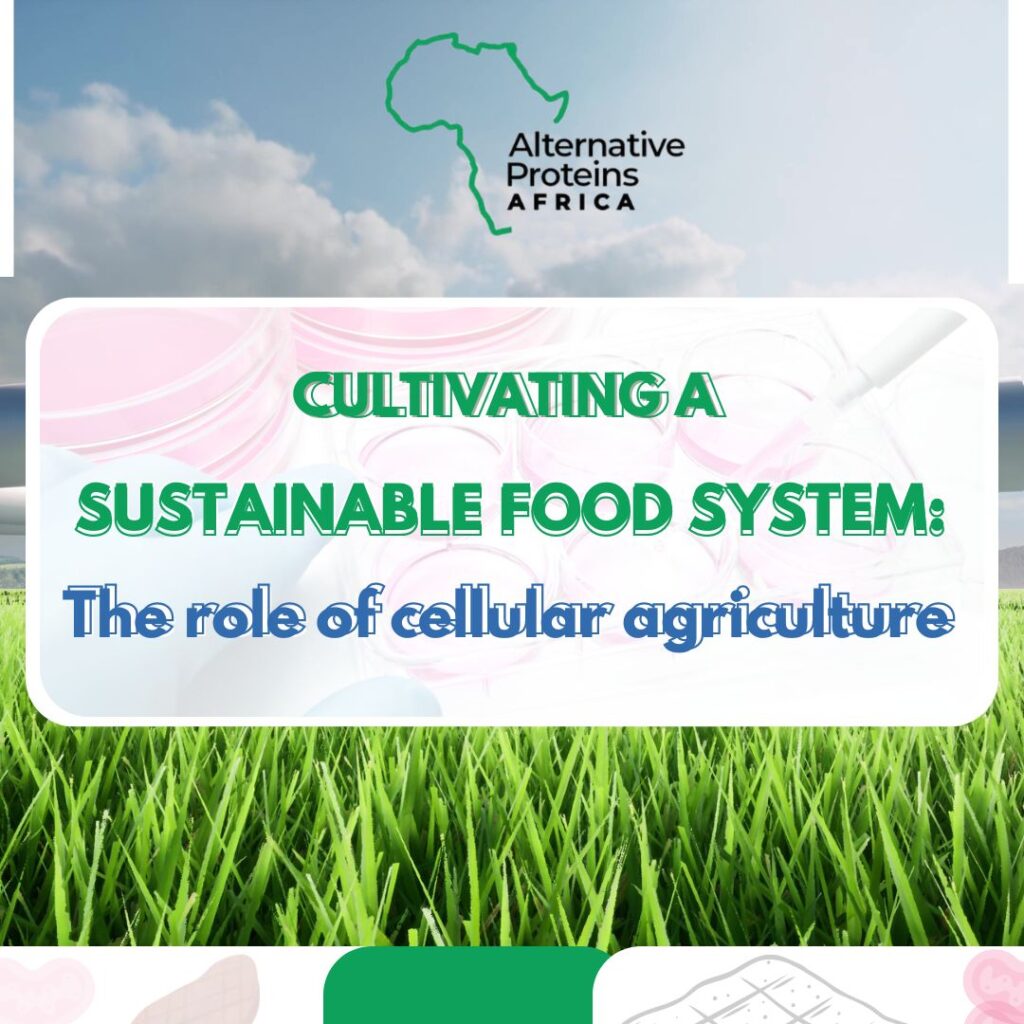
Introduction
Cellular agriculture is positioned to revolutionize food production on a global scale. As we face challenges like climate change, global health issues such as antimicrobial resistance, and resource depletion, working towards a sustainable food system is crucial. More than ever, achieving nutritious, safe, and affordable food has become more challenging and thus deserving of constant innovation. Cellular agriculture is emerging as one of such innovations poised to be a potential solution in pursuit of a low-impact diet. Truly, necessity is the mother of invention!
What is cellular agriculture?
Cellular agriculture presents a particularly new angle to food production. In contrast to traditional livestock farming, cellular agriculture bypasses the growing of animals to get products such as meat, milk, etc. What is done instead is that scientists extract some cells from animals and grow them in a controlled and predefined condition. These cells then feed on a growth medium rich in nutrients. Consequently, they grow, multiply, and differentiate into the desired tissues.
So, because of techniques such as cell culture and tissue engineering, we can now produce meat, eggs, seafood, milk, and other dairy food without intensive animal agriculture.
What are the potentials of cellular agriculture for sustainability?
Animal agriculture places some concerns on how resilient we produce food. On the other hand, cellular agriculture holds immense potential to make our food system more sustainable; it allows us to diversify our protein production. By sustainability, we mean that we are meeting our present needs for food without compromising the ability of the future generation to do the same. Below are some areas where cell-based agriculture will help contribute to the long-term viability of our food systems.
Climate change mitigation
Traditional agriculture contributes majorly to the emissions of greenhouse gases. Researchers have identified that 37% of methane emissions from human activity directly result from livestock farming and agricultural practices. Most of these emissions come from the burp and flatulence of ruminants, which are a group of farmed animals. Therefore, by reducing the need for industrial animal farming for meat production, cellular agriculture helps to address the climate change crisis.
Efficient resource use
Another importance of cellular agriculture is its ability to reduce the environmental impact of our food production. Animal agriculture is a major user of resources, using up to 75% of agricultural land and large amounts of water. This results in soil degradation, deforestation, biodiversity loss, and water scarcity. It shouldn’t go without being said that animals are poor and inefficient converters of resources. Farmed animals consume more food than they produce. For instance, about 25 calories of feed is required to produce one calorie of beef. On the contrary, cellular agriculture provides a low-impact alternative as it uses fewer water and land resources.
Promote food security
In the face of the global rise in population and limited resources, achieving food security is fast becoming difficult. In cellular agriculture, protein production is carried out in a shorter period when compared to livestock farming. Also, this technology can bring production to the point of consumption. This event reduces the dependence on long-distance transportation and complex value chains, thus promoting food security.
Addresses the ethical concern of Animal welfare in food production
At the center of sustainable food production is the need for improved animal welfare practices. As meat and other products are derived directly from the cells in cellular agriculture, the need to raise animals for food is significantly reduced. As a result, there is a corresponding increase in animal welfare practices. After all, factory farming has been associated with animal cruelty and abuse as it often prioritizes maximum production above the welfare of the animals.

What are the challenges that exist?
Despite the obvious benefits and potentials of cellular agriculture, there are specific and identified challenges that must be addressed. These include:
1. Addressing technological limitations: Growing and scaling cellular agriculture relies on advancement in technology. However, owing to the nascent state of technologies used in cellular agriculture, achieving mass production is currently a challenge. Therefore, it is crucial to invest in cellular agriculture technologies to foster the needed growth in the industry.
2. Promoting consumer acceptance: There is a need to promote public awareness and education to encourage the acceptance of cellular agricultural products. Poor awareness and disinformation have been identified as some of the challenges affecting consumer acceptance of products like cell-based meat. To achieve the widespread adoption of these products, it is necessary to gain consumers’ trust and address their various concerns.
3. Addressing the high cost of products: Due to the high cost of production, the price of cellular agricultural products like cell-based meat is expensive. As a matter of fact, this high cost is usually peculiar to innovations and inventions in their early stages. With continuous improvements and efforts at bringing down production costs, the products will be more accessible and affordable.
What is the future like for cellular agriculture in Africa?
Cellular agriculture, though an emerging technology, can advance Africa’s food system. Already, some startups and establishments within the continent are actively exploring it. For instance, South Africa’s Wildbio company (formerly Mogale Meat) is creating cell-based meat. Some other companies in this space include Newforms (formerly Mzansi Meat Co.) and De Novo Foodlabs.
Conclusion
Creating a just and equitable food system is essential, and cellular agriculture holds great potential to accomplish this. Though laced with underlying challenges, its role in promoting food security, mitigating climate change, and fostering efficient resource use is undeniable. However, the success of cellular agriculture is hinged on collaboration between relevant stakeholders while also prioritizing the production of products that are of pressing need.

